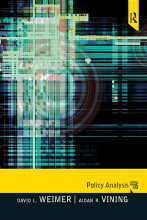Correcting market and government failures: generic policies - Using subsidies and taxes to alter incentives
5 important questions on Correcting market and government failures: generic policies - Using subsidies and taxes to alter incentives
Subsidies and taxes are market-compatible forms of direct government intervention. They aim to induce behavior rather than command it. We are primarily concerned with using taxes and subsidies in situation in which the intention is to correct market failures or achieve redistribution. They can have three possible impacts on efficiency:
- Where taxes and subsidies are aimed at correcting for externalities in particular markets, their impact may enhance efficiency.
- Where taxes and subsidies are to aimed at correcting a market failure, there is inevitably some net deadweight loss.
- Taxes may be used in an attempt to extract scarcity rents that arise in the use of natural resources such as oil.
The most common arguments used to justify tariffs are:
- Protecting a fledging industry (the so-called infant industry argument) provides positive externalities.
- Monopsony effects: If a country accounts for a large share of world demand for some good, then that country may be able to affect world price by restricting its demand through tariffs (or quotas).
- where a country produces enough of a good to potentially have monopoly power in the world market. Individual domestic producers competing against each other will not be able to extract monopoly rents, but a government imposing an export tariff might be able to raise the world price and so extract the rent.
In-kind grants refer to the direct provision of a commodity to consumers. Rationales that might justify large in-kind subsidies and the necessary enforcement efforts to prevent trading of the subsidized good in black markets are:
- One putative rationale for effective (large and non tradable) in-kind subsidies based on efficiency grounds is that the givers of the subsidies derive utility from the specific consumption patterns of recipients. In the presence of utility interdependence, in-kind transfers may be more efficient than unconstrained (cash) transfers.
- Another possible rationale is that the good in question generate positive externalities.
- Higher grades + faster learning
- Never study anything twice
- 100% sure, 100% understanding
Critics argue that tax expenditures are less desirable than direct subsidies for two reasons:
- Because tax expenditures emerge from relatively hidden debates about the tax code, their role as subsidies is not rigorously analyzed. Consequently, various forms of government failure, like rent seeking, are encouraged.
- Tax expenditures are notorious for their inequitable distributional consequences. Higher-income individuals are much more able to take advantage of tax expenditures than members of lower-income groups, who, not surprisingly, pay little or no tax in the first place.
There re two efficiency rationales for user fees (also known as congestion taxes, peak-load pricing, marginal social cost pricing, license fees or fares):
- The first is to internalize externalities (demand-side form of Pigovian tax)
- Second is to price public goods appropriately, specifically in the context of congested public (toll) goods like bridges, and open-access resource public goods such as fishing grounds.
The question on the page originate from the summary of the following study material:
- A unique study and practice tool
- Never study anything twice again
- Get the grades you hope for
- 100% sure, 100% understanding
































